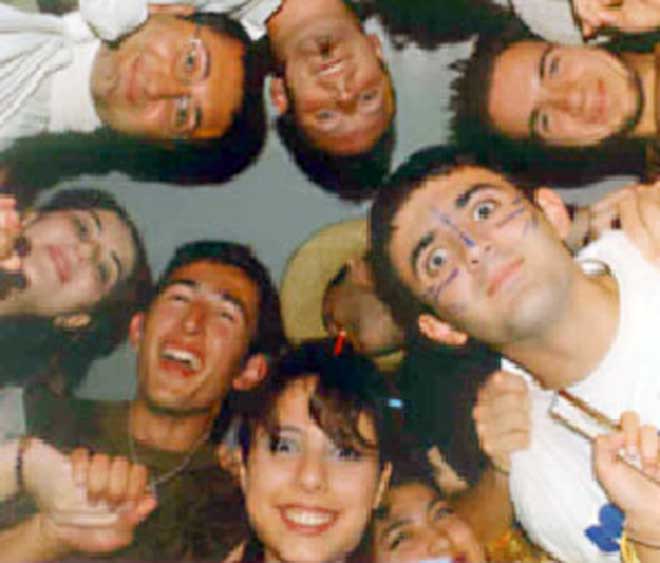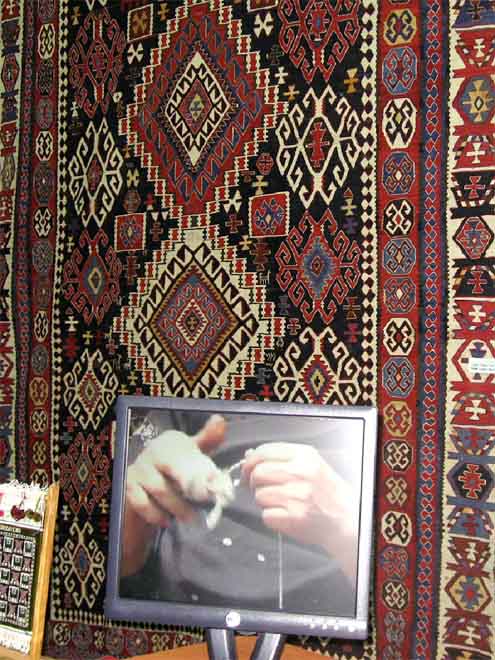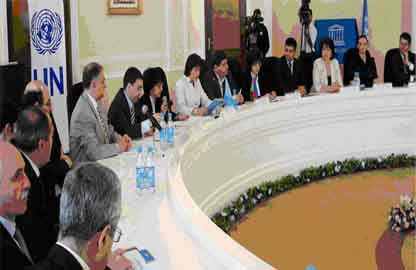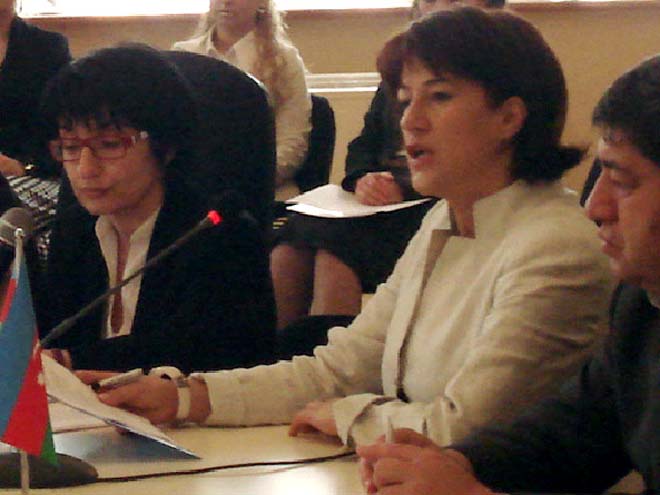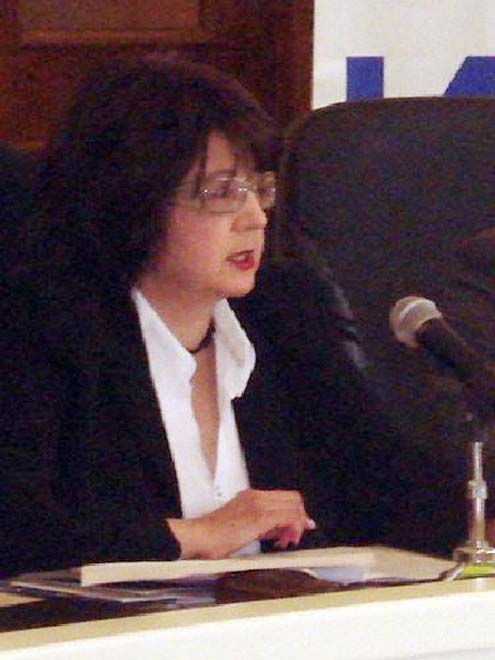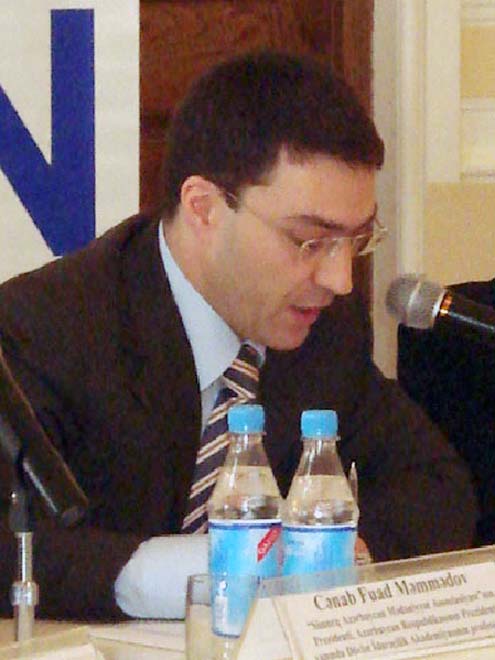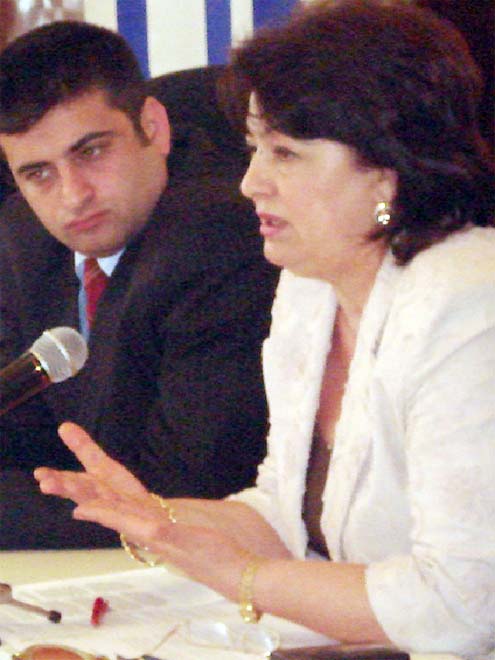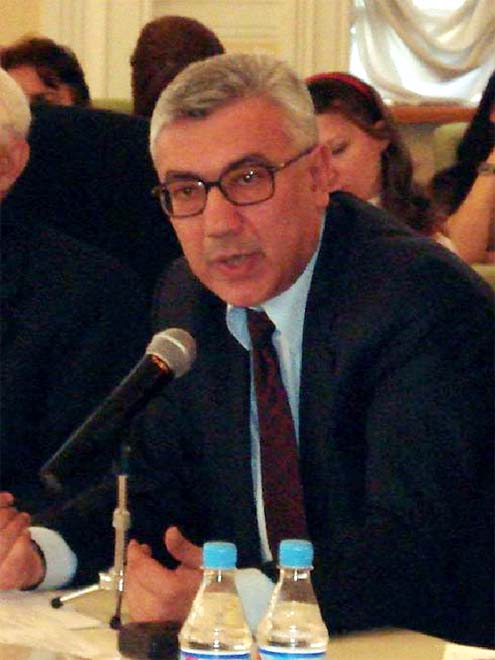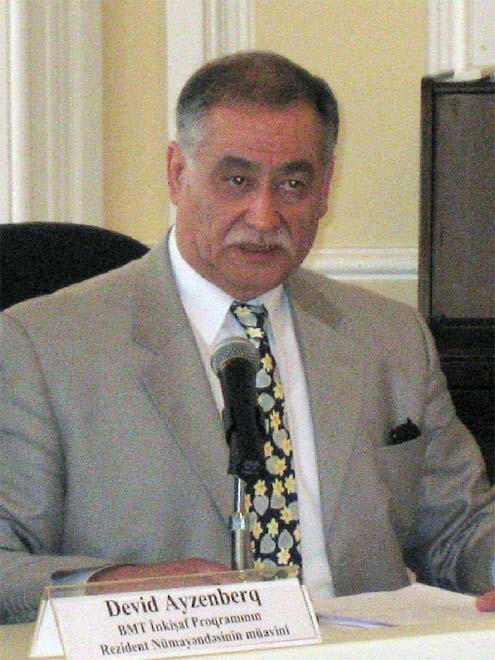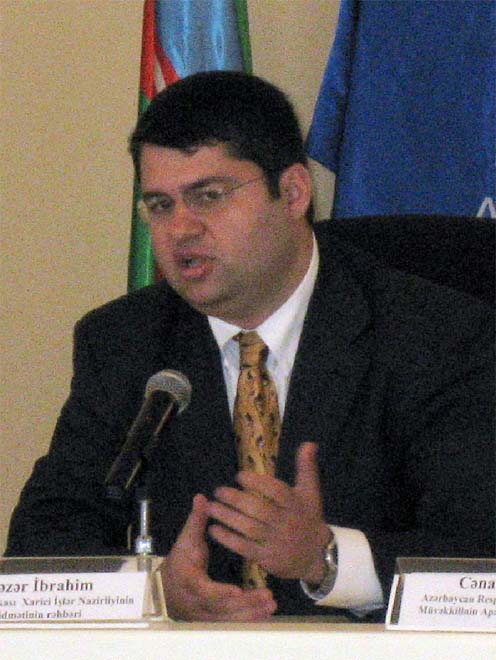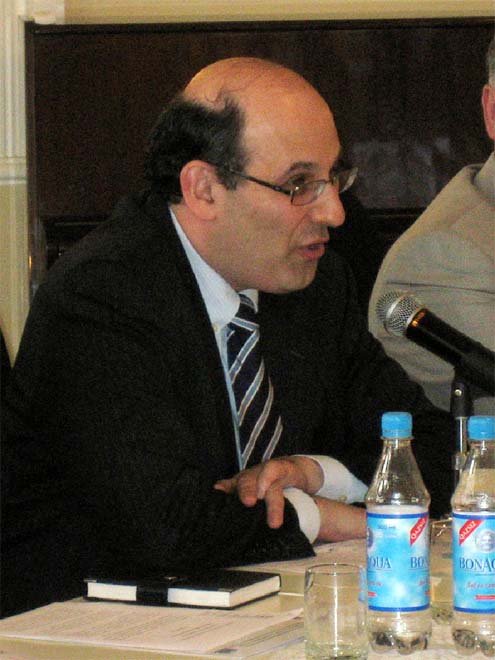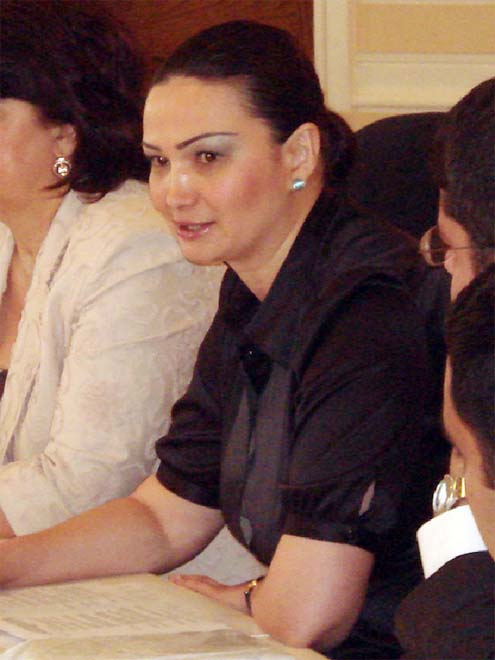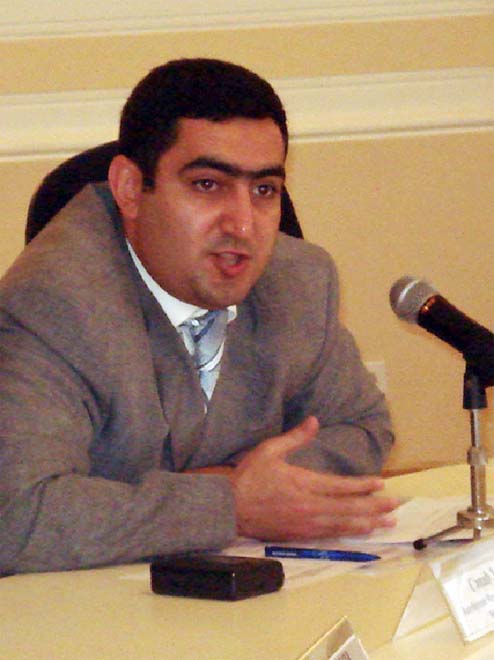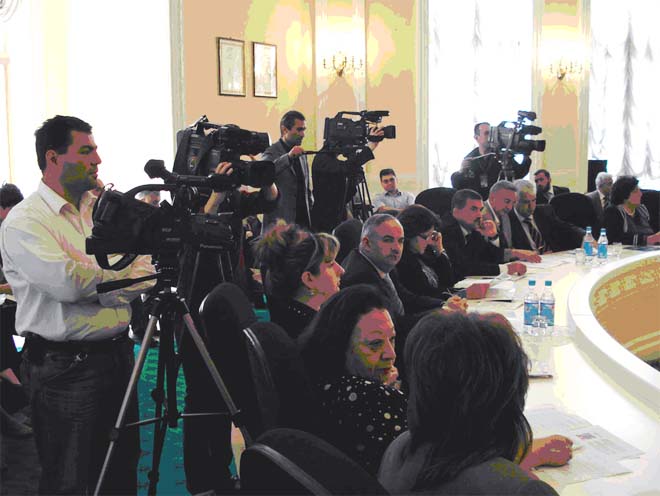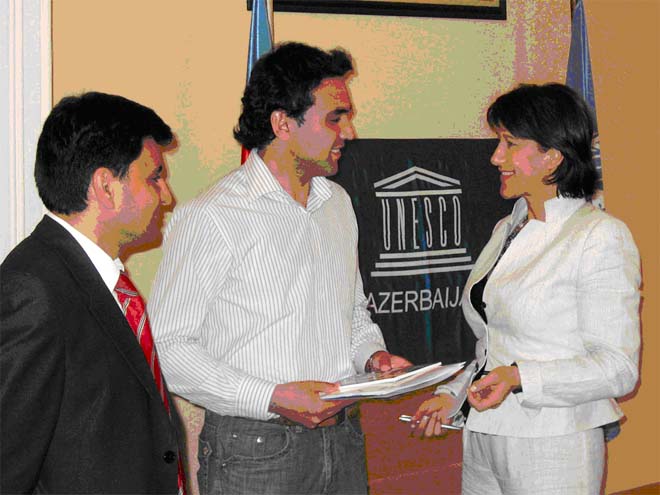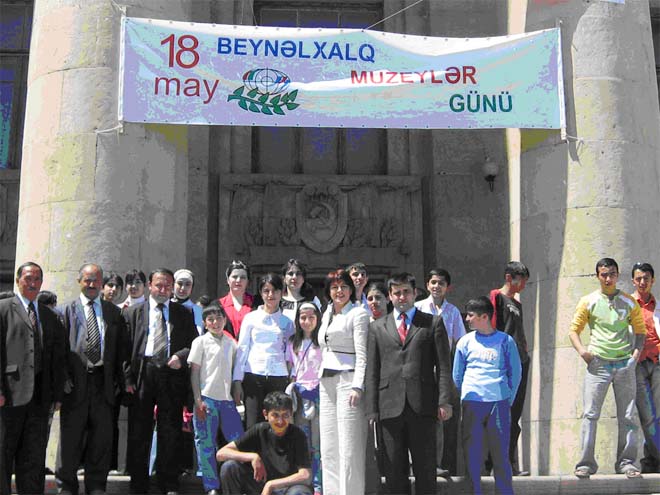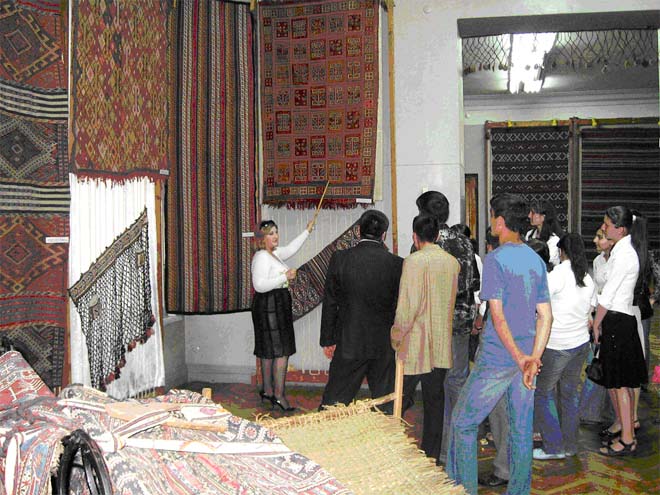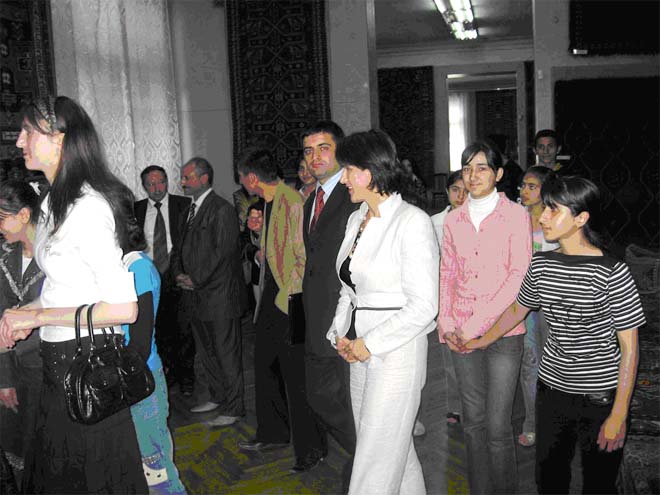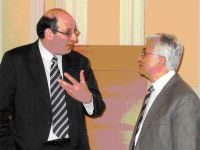World Day for Cultural Diversity for Dialogue and Development celebrated for the first time in Azerbaijan
Culture includes not only the arts and literature but also lifestyles, value systems, traditions, and beliefs. In today's world marked by the daily encounter with a new codes and symbols as the banners of globalization, nationalization, and religious intolerance, it seems that the need for culture of dialogue and for dialogue of cultures has never been so essential.
With a history of being at the crossroads of various civilizations, and being still a meeting point of different cultures, Azerbaijan affords the international community an opportunity to play a crucial role in promoting and enhancing the concept of a multicultural society and can contribute greatly in strengthening intercultural and interfaith dialogue.
Having in mind that the Culture of Dialogue is an essential element on the road to a Dialogue of Cultures and Development and on the eve of the Diversity Day the office of the United Nations Department of Public Information (UN DPI) in partnership with the Azerbaijan National Commission for UNESCO, Ataturk Centre and the Association of Culture of Azerbaijan "Simurg" facilitated a roundtable discussion on the "Need for a Culture of Dialogue on the road to a Dialogue of Cultures" on 19 May 2007 at Ataturk Centre bringing together around eighty participants from the different strata of Azerbaijan society.
Participants included the representatives of three ministries, (Culture and Tourism, Foreign Affairs, and Youth and Sport), State Committee for Family, Women and Children, Chairs for the Parliamentary Commissions for Human Rights, Culture, and the representative of the Commission on International Relations of the Parliament, and other government officials and even a political opposition representative, as well as heads and members of different CSOs and NGOs, academic institutions and universities, representatives of international organizations. The topic of discussion and the high level of representation drew significant mass media attention.
The discussion was an opportunity to reflect on "the integration of the principles of dialogue, understood as a corollary of diversity, into all development strategies". The participants hoped that the roundtable may have provided further momentum in increasing the awareness among the citizens of Azerbaijan regarding the challenge to accept social responsibility for the strengthening, promoting, and sharing of cultural wealth towards the on-going development of the country.
An angle on the crucial relationship between culture and development and the important role of information and communication technologies in this relationship was emphasized by the UN DPI representative, Ms. Envera Selimovic. She further added that "the responsibility falls to the citizens of Azerbaijan, to see to it that the educational curricula, for instance, encourages critical and creative thinking that one can apply to the country's self before engaging with the other; for how can one engage with others, discover its beauty, its similarities, and its differences if one cannot look within oneself first, within Azerbaijan, if you will?"
Recognizing that the methodology of reflection and self-criticism is the basis for real dialogue, some participants emphasized that government and the non-governmental sector, and most importantly civil society must explore ways in which to work together on this issue.
Emphasizing the UN DPI's special role in instigating the marking of World Day for Cultural Diversity for Dialogue and Development for the first time in Azerbaijan, Ms. Sevda Mamedaliyeva, Deputy Minister of Culture and Tourism, gave a brief overview of the Ministry's work on cultural policy. "We should all promote cultural diversity so that cultural activities, goods and services are able to add economic value to our country and be harnessed for national development."
The Head of the Permanent Commission on Culture of the Azerbaijani Parliament Mr. Nizami Jafarov, while praising the UN DPI office's initiative for bringing to light the importance of the value of cultural diversity, remarked that when respected "cultural diversity is a defining characteristic of humanity which can play a very important role in fostering development of any nation, and for that matter, Azerbaijan as well".
"I see this roundtable as an excellent opportunity to deepen our understanding of the values of cultural diversity and to give added value to better our daily practice of living "together better," remarked Mr. Emil Hasanov, the First Secretary of the National Commission for UNESCO. Continuing, he ex pressed his enthusiasm that Azerbaijan, as a member state of UNESCO, celebrated this World Day through UN DPI's involvement of so many actors and partners.
In her presentation Ms. Rabiyyat Aslanova, the Head of the Permanent Commission on Human Rights of the Parliament underlined the importance of "equality among parties engaged in dialogue". She further added that fortunately Azerbaijan has a historical foundation for a very good model of coexistence of cultural, ethnic and religious minorities, and nowadays, the main challenge is protecting this unity of diversity. Ms. Aslanova concluded her presentation with ex pressing her gratitude for such an important event being organized which paves a road for further dialogue on the role of cultural diversity as a vital element for national development.
Mr. Eldar Namazov, the President of Public Forum "For Azerbaijan", and a very prominent politician in Azerbaijan noted in his brief comments that despite numerous achievements in the area of intercultural and interfaith dialogue in Azerbaijan gaps still exist in conducting a political dialogue between government and the opposition of the country. "A proper dialogue among all political stakeholders is a precondition for furthering democracy in any country, and I hope that there will be a continuance of open dialogue by means of similar roundtables in the future."
On behalf of the Association of Culture of Azerbaijan "Simurg", President Mr. Fuad Mamedov commended the UN DPI office in Azerbaijan for organizing such an important event and welcomed the current positive changes in the area of cultural policy that the Ministry of Culture and Tourism initiating in Azerbaijan. However, he acknowledged the critical need for further identification in ethical, legislative and decision-making priorities in the area of cultural policy through comprehensive research that will result in a concrete Plan of Action. As a first step, he recommended establishing an International University on World Culture in Azerbaijan.
By summarizing the OIC conference on the "Role of Media in the development of Tolerance and Mutual Understanding", held on 26-28 April, 2007 in Baku, its results and lessons learned, Mr.Khazar Ibrahim, Spokesperson of the Ministry of Foreign Affairs also emphasized the importance of intercultural and interfaith dialogue, citing Azerbaijan as a paradigm in this context, in promoting dialogue and understanding among all ethnic, cultural and religious groups residing in the country.
"We are all different, and yet we are all the same. Differences should not divide us, but actually they can bring us together by contributing to unity in diversity," remarked, Mr. David Eizenberg, Deputy UNDP Resident Representative. Drawing from his experience during his tenure in Azerbaijan, Mr. Eizenberg said that he was im pressed by the special character of Azerbaijan where the representatives of different religious groups could sit together and peacefully discuss some sensitive issues such as HIV/AIDS related to their communities, making Azerbaijan's atmosphere of tolerance exceptional in this world. He ex pressed hope that the citizens of Azerbaijan would ensure this priceless legacy would be passed down to future generations.
Giving a brief overview of the current tendencies in the world related to the growing level of mistrust between people of different religions and cultures and its impact on global peace and security, Ms. Ganira Pashayeva, Member of the Parliamentary Commission on International Relations, urged politicians and civil society to engage themselves more proactively. These efforts in encouraging positive policies that foster religious and cultural interaction "stand greater chances of succeeding when they are presented in a culturally and religiously sensitive manner and build on open dialogue and community involvement".
On behalf of the Office of the Human Rights Commissioner (Ombudsman) of the Azerbaijan Mr. Zaur Aliyev, Head of Scientific Analytical Sector referred to the work done by his office, especially following the adoption of a National Plan of Action on Protection of Human Rights in Azerbaijan. It has reinforced, "favourable conditions for open dialogue and tolerance, which are integral to basic human rights".
Culture should never be viewed as an abstract concept, difficult to comprehend, because culture is who we are. This sentiment was shared by the participants in the lively discussion that ensued. Representatives of the various NGOs, specialists on cultural and religious issues and journalists agreed that culture is the totality of a people's way of life, the whole complex of distinctive spiritual, material, intellectual and economic features that characterize a society or social group and includes not only arts and letters, but also modes of life, the fundamental right of the human being, value systems, traditions, and beliefs.
Although the United Nations' World Day for cultural Diversity for Dialogue and Development falls on just one day, 21 May, one day is not enough to demonstrate to ourselves the importance of cultural diversity for national development.
The roundtable echoed that the nation is hungry for more occasions to celebrate and promote cultural understanding, dialogue and togetherness among all Azerbaijanis. Hence, holding cultural activities to commemorate this important concept should not be limited to one day but promoted throughout the year.
* * * * *
Following the roundtable devoted to the Diversity Day, the UN DPI representative Ms. Envera Selimovic accompanied around ninety school children from the IDP communities of Shusha, Jabrayil and Lachin regions who have been resettled in Baku suburbia, on a tour through the Museum Centre in Baku.
The tour for the IDP children was initiated by the UN DPI office and was facilitated through the great support of the Office of the Deputy Prime Minister and Head of State Committee on Refugee and IDP issues. The guided tour for children, free of charge, was part of a Museum celebration on the occasion of International Museum Day.

